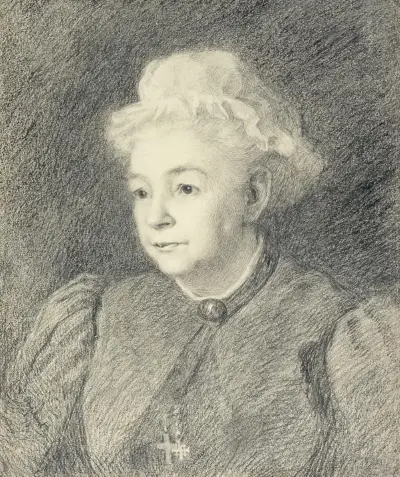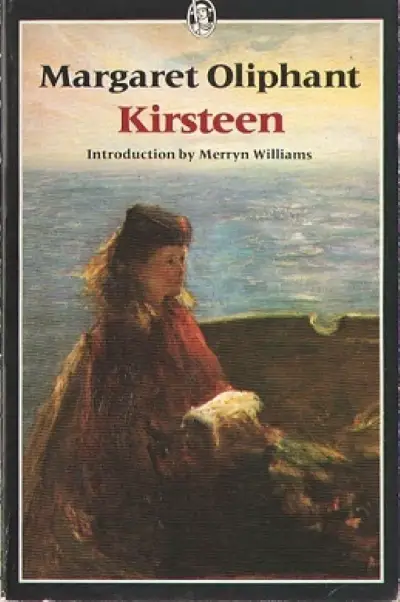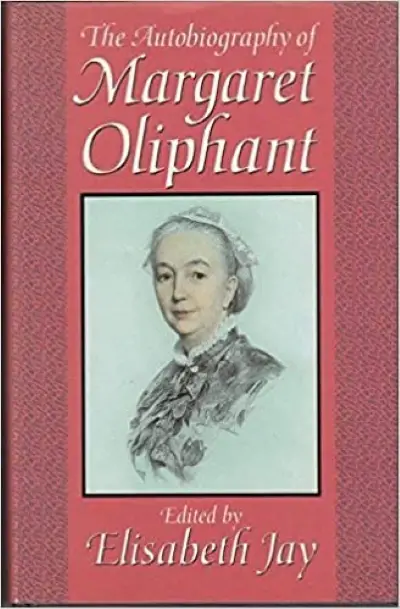Margaret Oliphant was a historical writer and novelist. Her best times were in the last decades of her career, although sometimes she is considered to be the second greatest women writers in the Victorian Era after George Eliot.
Margaret used the name Mrs Oliphant to publish her work. She was known to be a prolific daunt writer of her time. Some people think her as a writer who had talent but wasted by producing more work than she should have.

Early Life of Margaret Oliphant
Margaret Oliphant Wilson was born in 1828, April 4th, in Wallyford, a village in Scotland. She was a Scottish writer, she was born and brought up in Scotland, spent her childhood in Liverpool, Glasgow, and Lasswade. She showed her interest in writing at an early age and did many experiments.
Marriage
Margaret got married at the age of 24, she was married to her second cousin Frank Oliphant, who was an artist of stained glass. After marriage, the couple settled in Harrington Square, London. They had 6 children together, out of which 3 died at a very young age.
Frank showed major symptoms of tuberculosis soon after they were married. They moved to Florence for a better quality life and later to Rome, where Frank eventually died.
After the death of her husband
Margaret didn’t have any source of income now and no resources or anything to help her at this time. So she moved back to England and to support herself and her three children, she started writing.
Margaret soon gained fame and was quite successful in this career. Although she was doing good in her literary career, she still couldn’t properly to her family. This filled her life with disappointment and sorrow. This became worse when her daughter, Maggie, who was in Rome died in January 1864.
Margaret offered her brother to stay with her after he was ruined financially in Canada, this added more responsibility on her shoulders. She went to Windsor and settled there, near her son who was completing his education.
In 1866, Annie Louisa Walker, a second cousin of Margaret, came to live in her house to help her with all the responsibilities she had. Margaret spent the rest of her life in this house.
Although she was facing many problems during her life, she never quit writing and continued to write to support her family through her life. In1890, her elder son, Cyril Francis died. The younger son, Francis did some work with her and he also died in 1894.
Death
As Margaret lost all her children and her husband, she didn’t have much interest in her remaining life, and soon she died in 1897, June 20th, at Wimbledon, London. She was writing Annals of a Publishing House when she died and it was left incomplete, this was about all the achievements and progress at Blackwood’s firm. Her total net worth was around 5700 euros when she died. Her burial took place in Eton alongside her sons.
Literary Career of Margaret Oliphant
Margaret in her lifetime published around 120 books and numerous articles and short storied.
Passages in the Life of Mrs Margaret Maitland
She started her literary career with Passages in the Life of Mrs Margaret Maitland. This was the first novel and she published it at an early age 21 years, in 1849. This was a success and she continued writing after this. It was released before her husband died.
This novel is about a movement known as the Scottish Free Church. It shows the rural community of Scotland of 1843, May, during the Disruption. This was a time when Scotland was divided into two parts, although this doesn’t show any politics but only the community at that time.
After the success of her first novel, Margaret released two more novels in two years later. In 1851, Margaret released Caleb Field and later Merkland in the same year. Merkland is one of her best-known novels. In the same year, Margaret met William Blackwood, who was a publisher in Edinburgh. He invited her to work for Blackwood’s Magazine.
Margaret continued publishing notable works, The Days of My Life, published in 1857, was a self-tormenting novel and had a first-person narrative, this novel shows boldness and was known for that. Margaret’s best known includes the Chronicles of Carlingford, which she published anonymously from 1863 to 1866.
Miss Majoribanks
Miss Majoribanks was not a novel but a series of articles in Blackwood’s Magazine, started in 1865, February. This is considered her finest, wittiest, and wisest of Victorian-era novels. According to Mrs Leavis, this novel was such brilliance that Margaret never did anything this good before or later.
In the 80s, Margaret started mentoring Emily Lawless, an Irish novelist. While mentoring Emily, she published some short ghost tales including Old Lady Mary and The Open Door. In 1880, she also published a long story A Beleaguered City, a supernatural fiction.
After this most of Margaret’s work is about the injustice women were facing that time and how the society needed development. Kirsteen, published in 1890 was about this and this is one of her best-known novels.

How the world saw Margaret Oliphant
M. R. James admired the work of Margaret as James was also a supernatural fiction writer, he said A Beleaguered City and The Open Door couldn’t have done better.
Mary Butts described The Library Window as “one masterpiece of sober loveliness”.
In Blackwood’s Magazine, an article was released titled A Little Chat About Mrs. Oliphant, in which he asked the readers, “Had Mrs. Oliphant concentrated her powers, what might she not have done? We might have had another Charlotte Brontë or another George Eliot”.
Legacy of Margaret Oliphant
Margaret’s Autobiography and Letters showed the anxiety she faced through her lifetime was published two years after she died, in 1899. It was for her son but unfortunately, he died before she finished it.

In the 20th century, readers started losing interest in Margaret’s work when Virago Press and Alan Sutton republished her Chronicles of Carlingford, the revival of interest peaked for some time.
Margaret is known as one of the important writers of the Victorian era because of her short stories and novels. Although it is said that due to financial trouble she faced, she overproduced.
Oliphant Gardens, a street in Wallyford was named after Margaret.